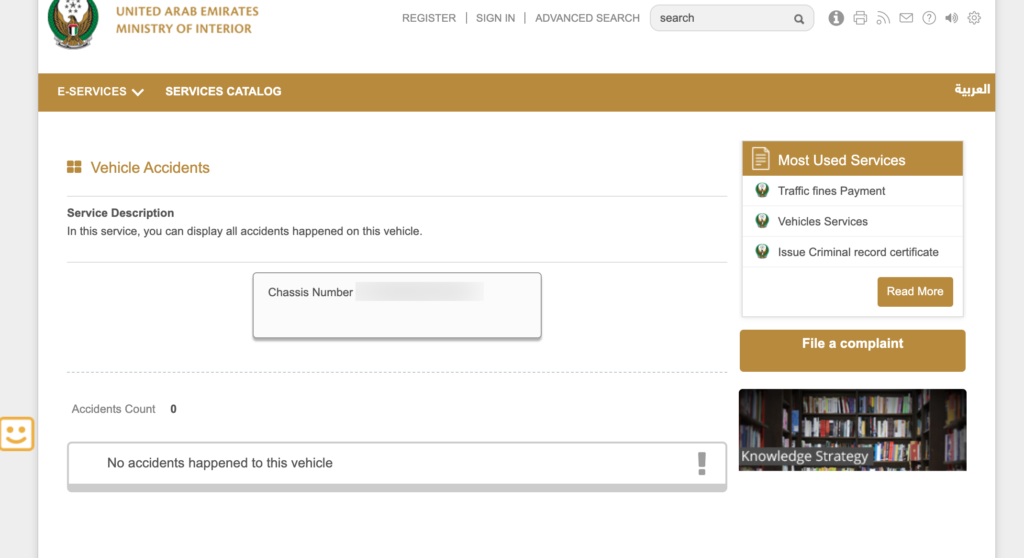UAE Vehicle History Check & Testing Centers Guide 2025
Thinking of buying a used car in Dubai, Sharjah, or anywhere in the UAE? Before you get excited about a shiny body or a good deal, there’s one step you should never skip: a vehicle history check and a visit to a vehicle testing center.
In 2025, the UAE government continues to enforce strict rules to ensure road safety, including tracking every car’s technical health, accident history, and legal status. Whether you’re buying from a dealer or a private seller, checking a car’s past through MOI accident history, Dubai car accident check, or Sharjah’s vehicle testing centre can save you from costly surprises. Some vehicles may have been involved in major crashes, carry unresolved loans, or even have falsified mileage readings.
Luckily, the process is now easier than ever. You can verify a car’s details online using platforms like the MOI UAE Portal, the RTA’s online services, or the Sharjah Police traffic portal. These tools allow you to check accident history, verify vehicle registration status, and book inspections at licensed centers.
In this blog, we will walk you through everything: how to perform a Dubai accident check, use a car history check report, find reliable vehicle testing centres in Sharjah, and understand the full inspection process. It’s your step-by-step map to avoid used car fraud and make a confident, safe purchase in 2025.
Let’s dive in.
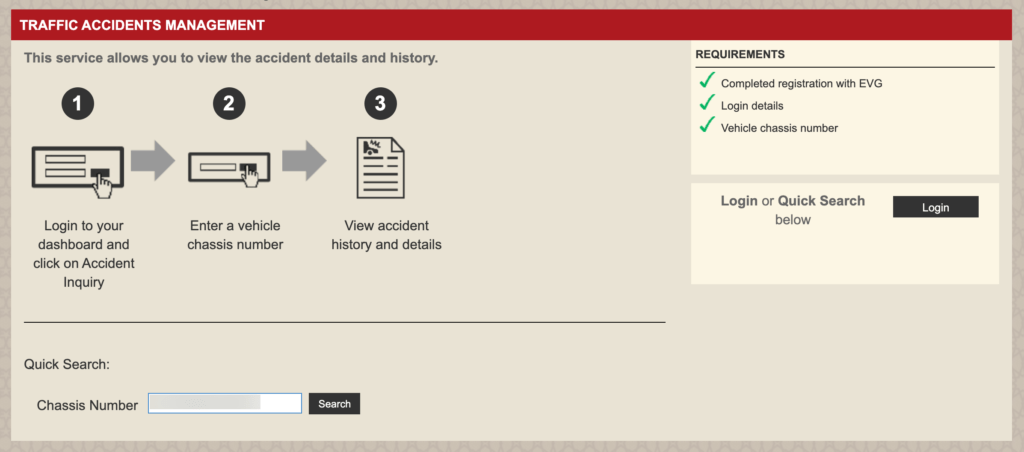
Why Vehicle History Checks Matter in the UAE
The UAE’s used car market is booming, especially in cities like Dubai, Sharjah, and Abu Dhabi. Expats and locals alike often prefer buying second-hand vehicles due to lower costs and a wide range of options. However, with this growth comes risk, hidden issues that don’t show up during a quick test drive.
Problems like odometer rollback, unreported accidents, and unpaid car loans are common red flags. If you’re not careful, you could end up with a car that looks perfect on the outside but hides costly issues inside. That’s where a car history check becomes essential.
Services like the MOI accident history and Dubai car accident check allow you to review the car’s past using the Vehicle Identification Number (VIN) or chassis number. These tools reveal if a vehicle has been involved in accidents, how many owners it’s had, and whether there are any outstanding fines or bank liens on it. Knowing how to do an accurate accident enquiry in the UAE can save you from legal and financial trouble later on.
Moreover, checking the vehicle registration status confirms if the car is still valid and registered in the system. The RTA vehicle information report, available via the RTA website, offers complete details, including the UAE vehicle ownership history and service logs, which are especially useful when evaluating car condition and resale value.
For those buying in Sharjah, a visit to a vehicle testing centre in Sharjah helps verify if the car meets technical and safety requirements. These centers inspect the car’s brakes, emissions, tires, and structural integrity, offering peace of mind before finalizing any deal.
Simply put, whether you’re buying, selling, or even transferring ownership, a proper vehicle history check ensures used car safety checks are not just a formality but a vital part of staying compliant and protected in the UAE.
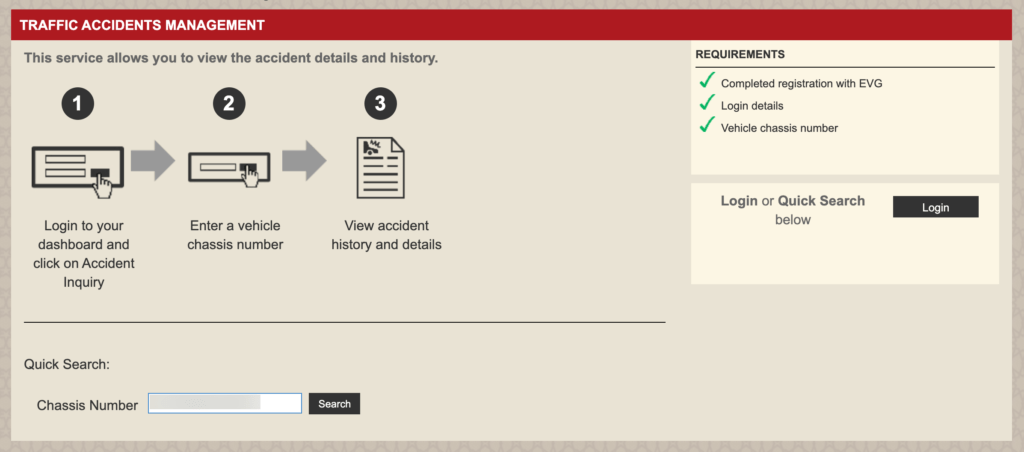
How to Perform a Vehicle History Check in the UAE
When buying a used car in the UAE, verifying its past is essential to avoid hidden issues like accident damage, loan liens, or tampered mileage. Whether you’re in Dubai, Sharjah, or Abu Dhabi, both government portals and private services allow easy access to detailed reports. Here’s how to perform a proper car history check in 2025.
RTA Online Vehicle History Check (Dubai)
The most common method for a Dubai car accident check is through the RTA Vehicle Condition Certificate available on the RTA website. This report gives you insights into:
- Ownership history
- Number plate changes
- Mileage logs
- Accident records
Steps to perform a car history check via RTA:
- Visit the RTA’s online services.
- Select “Vehicle Condition Certificate.”
- Enter the chassis number of the vehicle.
- Pay the service fee (around AED 100).
- Receive a digital report within minutes.
This check is highly reliable for vehicles registered in Dubai and includes a full registration history.
MOI Accident History Check (UAE-Wide)
The MOI accident history feature helps you check if a car was involved in any reported accidents across the UAE. This is useful even if the vehicle is being sold in a different emirate from where it was damaged.
How to check:
- Go to the MOI eServices Portal.
- Navigate to “Vehicle Accidents Inquiry.”
- Enter chassis number.
- View all recorded incidents.
This accident enquiry UAE tool is useful for nationwide coverage.
Vehicle Testing Centre Sharjah Services
In Sharjah, official vehicle testing centres also provide printed reports when you bring the car in for evaluation. Some of the popular centres include:
| Testing Centre | Location | Services Offered |
| Tasjeel Auto Village | Industrial Area 12 | Vehicle inspection, report printing, and accident check |
| Motor Check Sharjah | Al Wahda St | Emission testing, history verification |
These reports confirm structural integrity and help you validate any claims made by the seller.
Third-Party Car Report Services
Platforms like Al-Futtaim Automall, CarReport UAE, and Dubizzle Pro Services offer advanced used car report UAE packages. These typically cost AED 100–200 and include:
- Engine performance data
- Service history
- Export/import data
- Accident severity and location
- Stolen vehicle status
Such services are ideal if you want a second layer of verification beyond government portals.
What a Full Vehicle History Report Includes
| Report Section | Description |
| Registration History | List of previous owners and emirates of registration |
| Accident Data | All police-reported accidents linked to the car |
| Loan or Mortgage Status | If the car is under bank finance |
| Mileage Tracking | Odometer records from testing centers |
| Plate Changes | Any change in the vehicle number plate |
Knowing how to check vehicle registration status and history ensures you make a safe and legal purchase.
Interpreting the Vehicle History Report in the UAE
After retrieving a car history check or MOI accident history report, the next critical step is learning how to read and use this information wisely, especially when buying a secondhand car. Every section of the report reveals essential details that help buyers assess the true condition, reliability, and value of a vehicle.
Ownership History and Registration Chains
Understanding the ownership trail is crucial. A long chain of previous owners, especially over short intervals, might indicate recurring issues or poor maintenance. On the other hand, a single-owner vehicle that’s regularly serviced typically suggests better upkeep.
In most vehicle inspection reports in UAE records, this section also lists the emirate where the car was registered, which is helpful if you want to verify its usage in urban or off-road areas.
Accident Severity and Structural Damage
Most reports, especially those from Dubai car accident check tools, categorize accidents based on severity: minor, moderate, or significant. Minor dents may not affect performance, but major structural issues (like frame damage or airbag deployment) can lower safety and resale value.
Use this section to weigh whether the price justifies the damage or to negotiate a better deal. If the seller does not disclose damage but shows up in the report, it’s a red flag.
Insurance Claims and Stolen Vehicle Alerts
A trustworthy accident enquiry UAE report includes past insurance claims linked to the chassis number. This reveals whether the car was written off, declared salvage, or repaired after a major incident. Cars with large claims might face difficulty with future insurance or resale.
Additionally, most government portals like MOI or RTA flag stolen vehicle alerts, making sure you’re not unknowingly buying a blacklisted vehicle.
Mileage Verification and Service Gaps
Mileage data often comes from testing centres, such as the vehicle testing centre in Sharjah, and gets logged during registration renewals. Consistent mileage progression indicates reliability. But if the numbers suddenly drop (e.g., 140,000 to 90,000 km), this could point to odometer tampering.
Compare mileage with service intervals. A big gap in mileage logs without corresponding oil changes or mechanical checks means maintenance may have been skipped, another signal to negotiate or walk away.
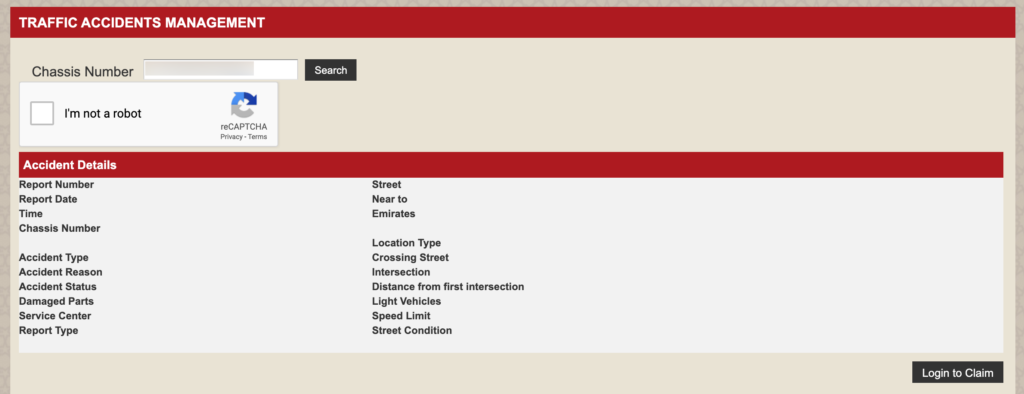
Red Flags in Vehicle History Reports
| Report Element | Warning Sign | Buyer Action |
| Ownership History | Multiple short-term owners | Inspect service records closely |
| Accident Data | Major collisions or airbag deployment | Reconsider purchase or reduce the offer |
| Insurance Claims | High claim value vs. car price | Ask the seller for post-repair proof |
| Stolen Vehicle Status | Active theft report | Avoid completely |
| Mileage Records | Inconsistent or reduced km reading | Check for odometer rollback |
Official Testing Centers vs. Private Inspection Services in the UAE
The testing process is unavoidable when buying a used vehicle or renewing your vehicle registration. But where you get your car tested can make a big difference. You have two main options in the UAE: government-approved testing centers and private inspection services. Both serve the same core purpose, ensuring your car meets roadworthiness standards, but they differ in terms of fees, turnaround time, and available services.
Let’s explore the pros and cons and help you decide what’s right for your needs.
RTA-Approved Testing Centers: Reliable and Regulated
Government-authorized testing facilities like Tasjeel, Shamil, Tamam, and Vehicle Testing Center Sharjah offer standardized inspections across the Emirates. These centers follow strict protocols laid out by the RTA testing center and UAE regulations, making them ideal for official tasks such as ownership transfers, renewals, and import checks.
At these centers, you can expect structured vehicle checks including:
- Chassis inspection
- Emissions testing UAE
- Brake and alignment tests
- Lights, tires, and underbody evaluations
If your vehicle is over three years old, it is mandatory to undergo these inspections annually before registration renewal. The report is instantly uploaded to RTA systems, making the renewal process seamless.
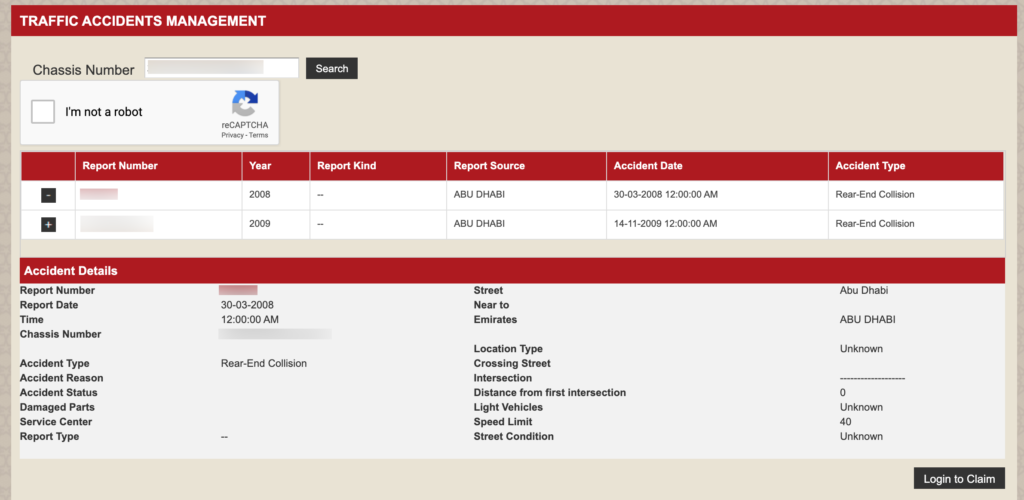
Private Car Inspection Services: Convenience with Caution
On the other hand, many UAE residents opt for private inspection garages like AutoCheck, SpeedTest, and DriveSure for car pre-purchase inspections in the UAE. These centers are not always authorized to issue official testing reports for registration, but they offer detailed technical insights, perfect for evaluating used cars before buying.
Private inspections often include:
- Full mechanical checks
- Computerized diagnostics
- Road tests
- Paint thickness measurements (to detect past accidents)
These services go beyond what’s offered at RTA centers, helping buyers assess the true condition of a vehicle. However, these centers cannot be used for registration-related inspections unless they are RTA-certified.
Comparing Government vs. Private Testing Services in the UAE
Here’s a side-by-side look at key differences between official RTA testing centers and private vehicle testing services:
| Feature/Service | RTA Testing Centers (e.g., Tasjeel, Shamil) | Private Inspection Services (e.g., AutoCheck, SpeedTest) |
| Official Inspection for RTA | ✅ Yes | ❌ No |
| Accepted for Registration/Renewal | ✅ Yes | ❌ No |
| Pre-Purchase Used Car Reports | ❌ Limited | ✅ Yes |
| Emissions & Brake Testing | ✅ Included | ✅ Included |
| Chassis and Underbody Check | ✅ Yes | ✅ Yes |
| Computerized Diagnostics | ❌ Basic | ✅ In-depth |
| Report Delivery Time | 15–30 minutes | 1–2 hours |
| Locations Across the UAE | Wide network (Dubai, Sharjah, Abu Dhabi) | Limited, varies by emirate |
| Typical Inspection Cost (AED) | 170–200 AED | 250–450 AED |
Which One Should You Choose?
If you’re renewing a Dubai vehicle registration or registering a used car in your name, choose an RTA-approved testing center. It’s the only legally accepted route and provides all the checks required for compliance.
If you’re buying a car and want a detailed car history check and condition analysis before committing, a private inspection service is your best bet, especially when paired with an online Dubai car accident check or MOI accident history report.
Step-by-Step Vehicle Inspection Procedure in UAE
Here’s a simplified, step-by-step guide to what you can expect during a typical inspection, particularly in facilities like Vehicle Testing Centre Sharjah, Tasjeel, and other RTA-authorized stations across Dubai and other emirates.
Booking the Vehicle Inspection
You can either book an appointment online through the RTA or other authorized platforms or walk in directly at the test center. Booking ahead can help reduce wait times, especially during peak periods like registration renewal months.
Documents required:
- Original Mulkiya (registration card)
- Valid vehicle insurance
- Emirates ID (for identification)
Vehicle Testing Procedure and Checklist
The vehicle goes through a structured inspection supervised by trained technicians. The car testing procedure in Dubai and other emirates is largely standardized. The inspection typically takes 20 to 40 minutes, depending on the type and condition of the vehicle.
Here’s a breakdown of what’s checked during the vehicle fitness test UAE:
| Inspection Component | What’s Checked |
| Exterior Body | Dents, rust, paint condition |
| Brakes & Suspension | Brake force, disc condition, suspension |
| Engine Bay | Oil leaks, engine mount condition |
| Exhaust System | Emission levels (must meet UAE standards) |
| Chassis & Frame | Underbody integrity, rust, and welding |
| Lights & Indicators | Headlights, brake lights, turn signals |
| Tires & Alignment | Tread depth, balance, and wheel alignment |
| Safety Features | Seat belts, airbags (where applicable) |
Pass/Fail Criteria & Retesting
If your car passes the inspection, you’ll receive a printed RTA fitness certificate and a vehicle inspection sticker valid for one year. These documents are digitally recorded and required for your registration renewal.
If the car fails, you’ll be issued a failure report highlighting the specific issues. You have 30 days to make repairs and return for a free retest at the same center. After this window, a new test fee will apply.
Important Notes for UAE Drivers
- Imported cars must undergo the same inspection upon registration.
- Vehicles over 3 years old must be tested annually.
- Cars that are heavily modified or repainted may undergo more scrutiny during the Dubai car accident check process.
Getting your vehicle tested is not just about compliance; it ensures road safety for you and others. Whether you’re conducting a car history check or undergoing routine renewal, this step is mandatory across all emirates.
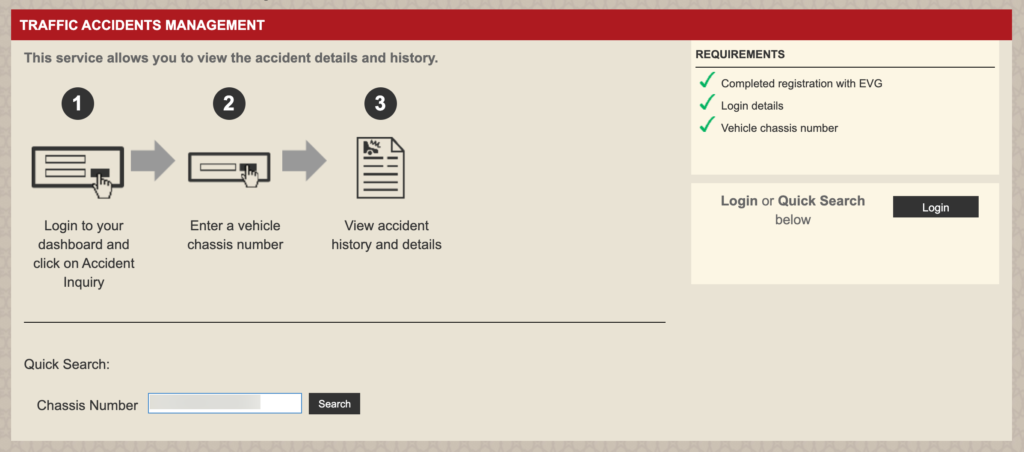
Common Issues Found During Inspections in the UAE
Vehicle inspections in the UAE are thorough and designed to catch anything that might pose a risk to road safety or violate environmental standards. Whether you’re visiting a vehicle testing centre in Sharjah, Dubai, or any other emirate, some problems frequently cause a failed inspection.
Below is a detailed look at the most common issues, how to address them, and what to expect next.
Frequent Reasons for Inspection Failures
1. High Emissions Levels
One of the top reasons for failure is that car emissions fail in the UAE. Vehicles with poor engine tuning, leaking exhaust systems, or old catalytic converters often exceed the permissible CO₂ and NOx levels. To pass the inspection, drivers may need to service the engine, replace spark plugs, or install a new catalytic converter.
2. Worn or Bald Tires
Tires with tread depth below 1.6mm are considered unsafe. This is a major vehicle fault in the UAE. Replacing all four tires could cost between AED 800 to AED 2,000 depending on the brand and size.
3. Brake System Issues
Brake failure test in Dubai inspections often flag weak braking force or uneven braking between wheels. Faulty brake pads, worn rotors, or leaking brake fluid lines must be replaced or repaired. Costs range from AED 300 to AED 1,200.
4. Suspension & Steering Problems
The vehicle will likely fail if the suspension is too soft, noisy, or unbalanced. Broken shocks, damaged bushings, or unaligned steering are typical culprits.
5. Light Malfunctions
Dim or non-functioning headlights, tail lights, brake lights, or indicators can all cause an automatic fail.
6. Chassis & Frame Corrosion
Heavy rust or structural damage spotted during the chassis inspection UAE check can disqualify a car until fully repaired. This is especially common in older or imported vehicles.
Repair Guidance and Retest Timeline
If your vehicle fails, you’ll receive a failure report specifying all the problem areas. You are granted 30 days to fix the issues and return to the same testing center for a free retest. If you miss this window, you’ll need to pay the inspection fee again, which typically ranges from AED 150 to AED 170.
Repairing faults early and performing regular maintenance can help you avoid these issues altogether. Address worn tires, brake pads, and light bulbs before your inspection date to save time and money.
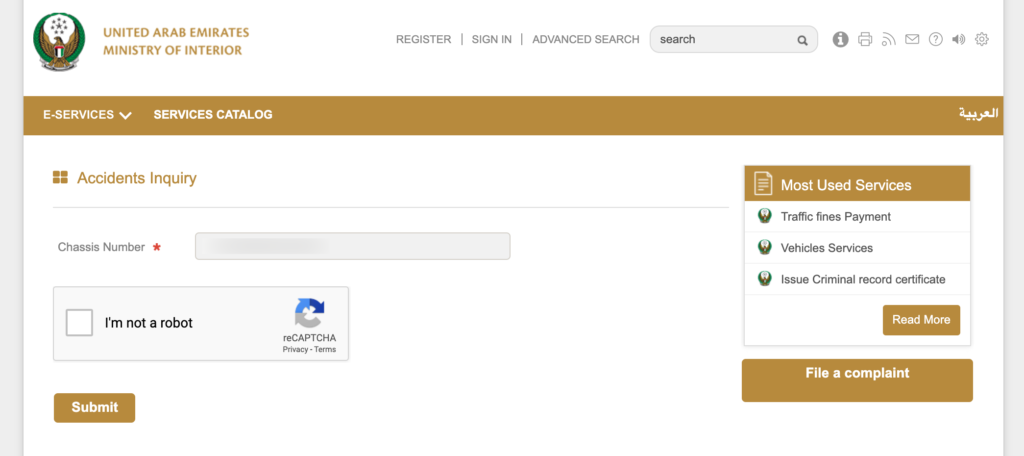
Conclusion
Staying on top of your vehicle’s history and inspection status is not just about following rules, it’s about ensuring your safety and the safety of everyone on UAE roads. From checking your MOI accident history to visiting authorized vehicle testing centres in Sharjah and other emirates, every step plays a vital role in maintaining your car’s roadworthiness.
Using trusted platforms to do a Dubai car accident check, or accessing your car history check online, can help you avoid costly surprises, especially if you’re planning to buy a used car. And with routine vehicle testing, you’re always one step ahead when it comes to emissions, brake function, tire safety, and overall vehicle health.
For more expert advice on owning or renting luxury vehicles in Dubai and the wider UAE, or for smooth rental experiences backed by trust and transparency, explore our services at Drive UAE. Safe driving starts with knowledge, and we’re here to help you every mile of the way.

